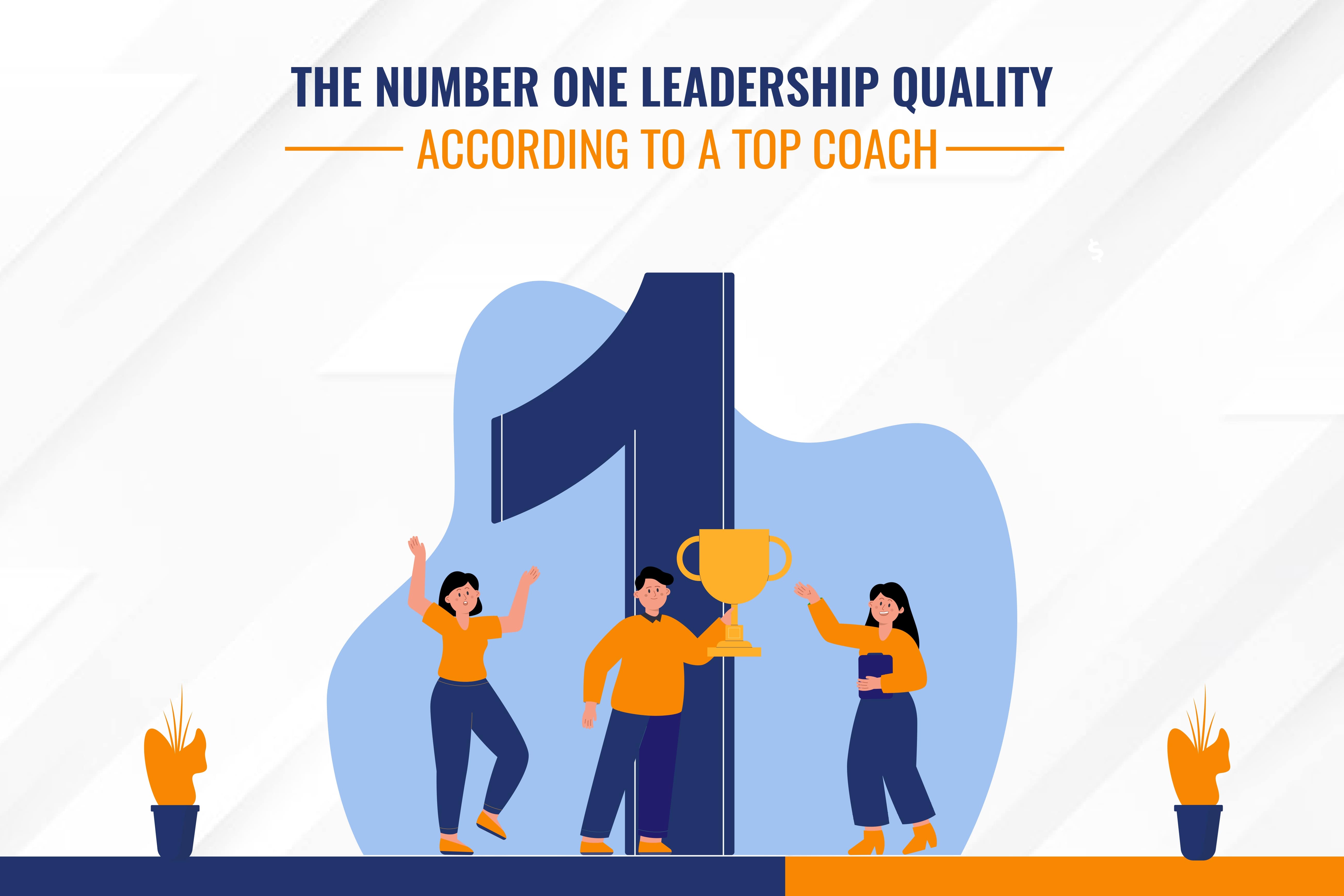
The Number One Leadership Quality According to a Top Coach
In such a competitive business landscape, effective leadership is the cornerstone of organizational success. Leaders play a pivotal role in shaping company culture, driving innovation, and inspiring teams to achieve their full potential. But what exactly defines exceptional leadership? While there are numerous qualities that contribute to effective leadership, according to top coaches and leadership experts, one quality stands out above the rest: Emotional Intelligence (EI).
Today, let us try to understand the significance of Emotional Intelligence in leadership, exploring its impact on organizational performance, the key components of EI, and practical strategies for cultivating this essential quality. Whether you are an aspiring leader, a seasoned executive, or an HR professional seeking to enhance leadership training for employees, we will provide invaluable insights to elevate your leadership skills and drive success in your organization.
Understanding Emotional Intelligence
Emotional Intelligence, a term introduced by psychologists Peter Salovey and John Mayer in the early 1990s, refers to the ability to recognize, understand, and manage one's own emotions, as well as effectively handle the emotions of others. It includes a variety of competencies such as self-awareness, self-regulation, social awareness, and relationship management.
At its core, Emotional Intelligence empowers leaders to connect with their teams on a deeper level, foster trust and collaboration, and navigate challenges with resilience and empathy. Unlike technical skills or industry expertise, which are undoubtedly important, EI transcends traditional leadership attributes, offering a holistic approach to leadership skills development training and development that resonates across industries and organizational levels.
The Impact of Emotional Intelligence on Organizational Performance
Research consistently demonstrates the profound impact of Emotional Intelligence on organizational performance and employee engagement. According to a study conducted by the Consortium for Research on Emotional Intelligence in Organizations, leaders with higher levels of EI are more likely to create positive work environments, nurture high-performing teams, and drive business results.
Furthermore, employees who work under emotionally intelligent leaders report higher job satisfaction, increased motivation, and greater commitment to their organization. By fostering a culture of trust, open communication, and psychological safety, emotionally intelligent leaders empower their teams to thrive amidst challenges, adapt to change, and innovate with confidence.
Key Components of Emotional Intelligence
To cultivate Emotional Intelligence and reach your full leadership potential, it's essential to understand the key components that comprise this quality!
Self-Awareness
The foundation of Emotional Intelligence, self-awareness involves recognizing your own emotions, strengths, weaknesses, and values. Leaders who possess high levels of self-awareness are better equipped to understand how their emotions influence their behavior and decision-making, allowing them to manage themselves more effectively in various situations.
Self-Regulation
Building on self-awareness, self-regulation refers to the ability to control impulses, manage stress, and adapt to changing circumstances with composure and resilience. Emotionally intelligent leaders demonstrate poise under pressure, maintain a positive outlook amidst challenges, and make sound decisions based on rational thinking rather than reactive emotions.
Social Awareness
Embracing empathy and perspective-taking, social awareness enables leaders to understand the emotions, needs, and concerns of others. By actively listening, observing nonverbal cues, and demonstrating empathy, emotionally intelligent leaders foster inclusive environments where every team member feels valued and understood.
Relationship Management
The culmination of Emotional Intelligence, relationship management involves building and maintaining positive interpersonal relationships, resolving conflicts constructively, and inspiring others to achieve common goals. Effective leaders leverage their emotional intelligence to communicate authentically, provide constructive feedback, and cultivate a culture of collaboration and trust within their teams.
Practical Strategies for Cultivating Emotional Intelligence
Developing Emotional Intelligence is a lifelong journey that demands dedication, self-reflection, and continuous growth.
Practice Mindfulness
Incorporate mindfulness practices like meditation, deep breathing, or journaling into your daily routine to build self-awareness and emotional resilience.
Seek Feedback
Seek feedback from peers, mentors, and team members to gain insights into your strengths and areas for improvement.. Embrace constructive criticism as a chance for growth and learning.
Empower Your Team
Encourage open communication, empower team members to voice their opinions and ideas, and foster a culture of psychological safety where everyone feels valued and respected.
Lead by Example
Show authenticity, integrity, and empathy in your interactions with others. Model the behaviors and values you wish to instill within your team and strive to create a positive impact both professionally and personally.
Invest in Leadership Development
Participate in leadership training courses, workshops, or coaching sessions focused on Emotional Intelligence and interpersonal skills development. Continuously seek opportunities to expand your knowledge and refine your leadership approach.
Let’s Wrap Up!
Emotional Intelligence emerges as the most important leadership quality that distinguishes exceptional leaders from the rest and helps us understand leadership skills development training. By honing your Emotional Intelligence skills, you can inspire teams, foster innovation, and drive organizational success in the face of complexity and uncertainty.
As you embark on your journey to enhance leadership training for employees, remember that Emotional Intelligence is not merely a skill to be mastered but a mindset to be embraced. By cultivating self-awareness, empathy, and authentic connections with others, you can unlock the full potential of your leadership and leave a legacy of positive impact within your organization and beyond.
